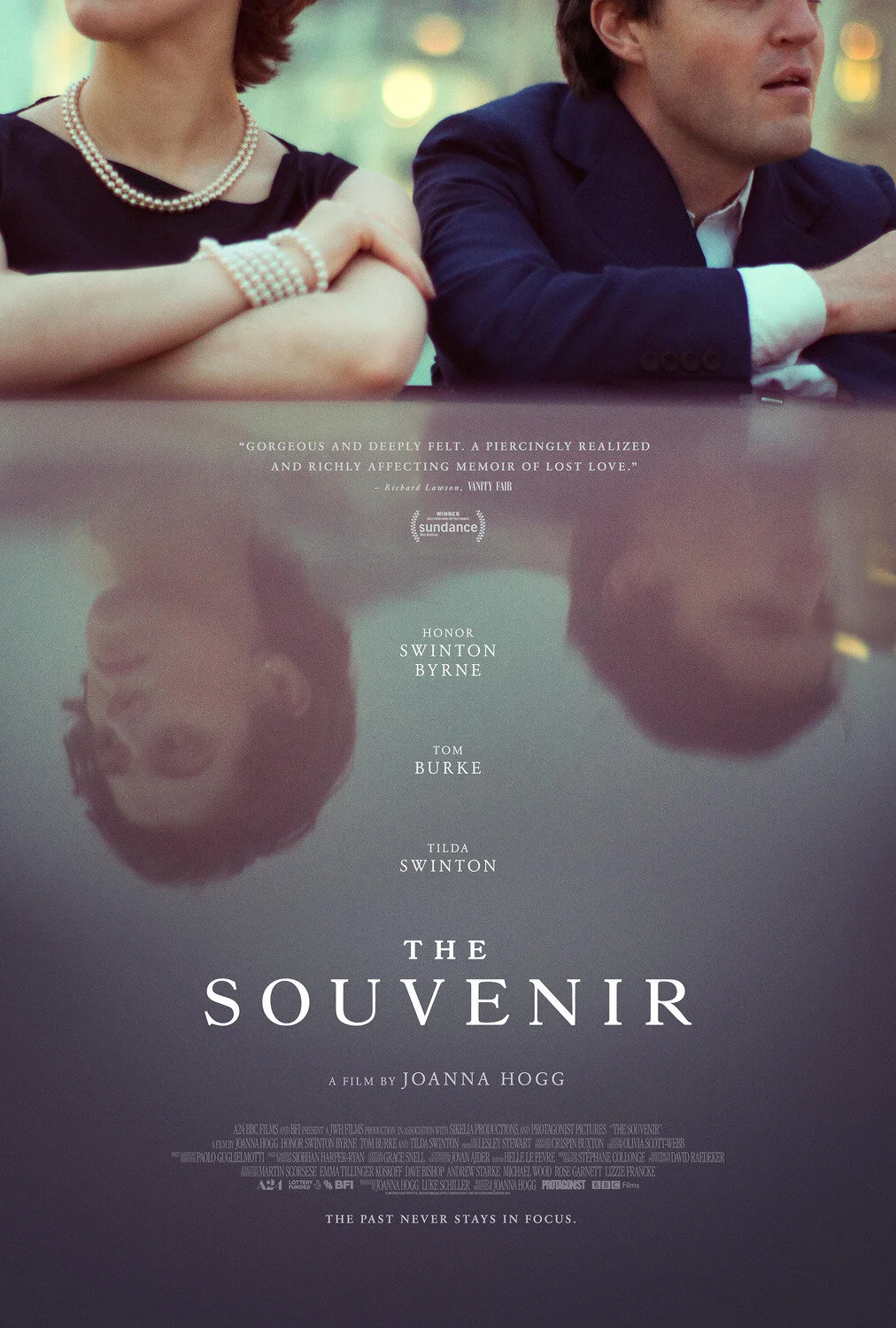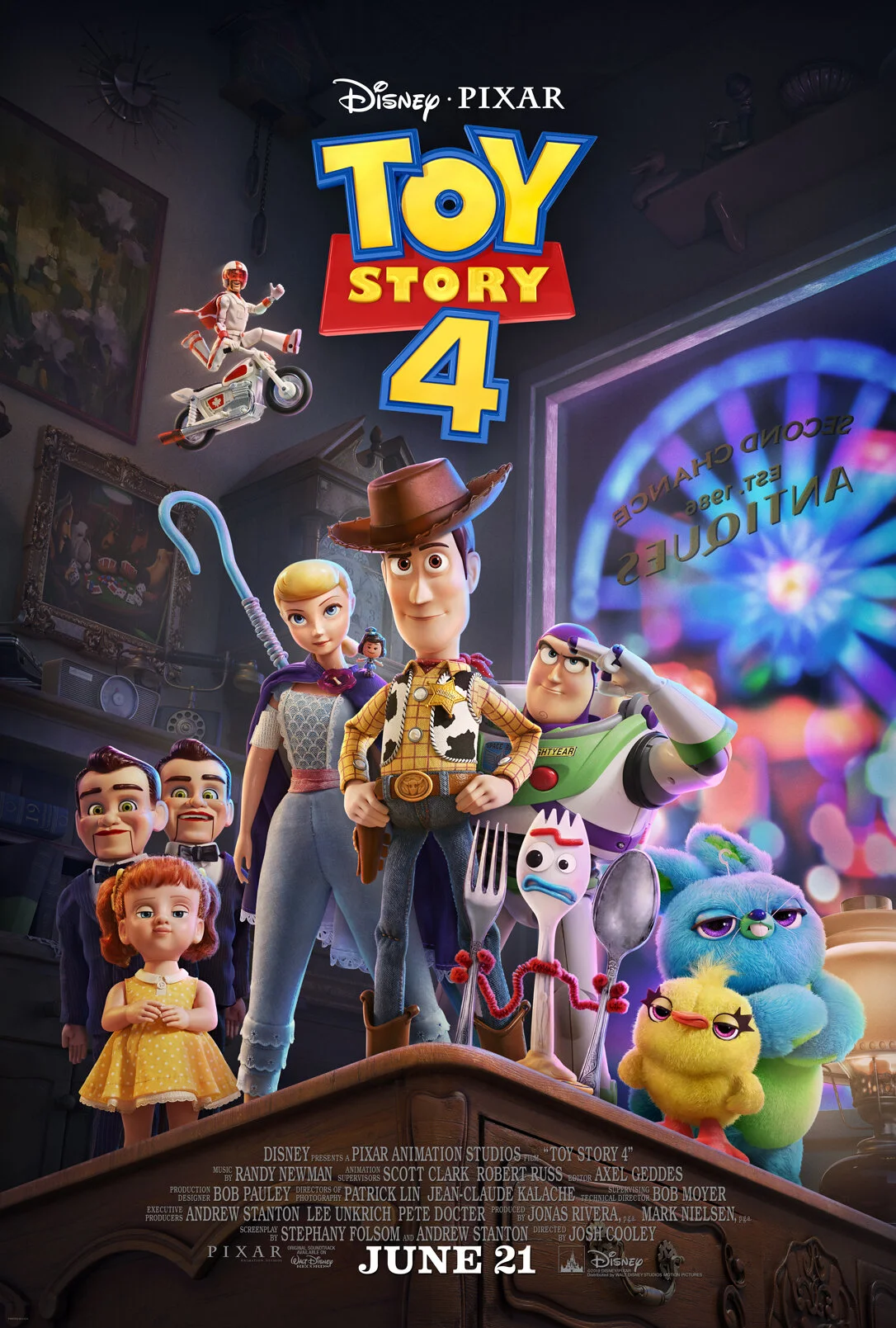Joanna Hogg's 'The Souvenir' is a Quietly Tragic Memoir
A couple lay in bed, leaning up against the frame. The man smokes a cigarette and tries his hardest to look like he does not give a damn about his surroundings. He’s rugged but refined, and he carries himself as such. He gazes idly ahead of him, lost in thought, while his bright-eyed and enamored girlfriend runs her fingers from his shoulder down to his wrist. By this point, we’ve only just met these two lovers, and their timid witticisms have seemed innocent enough. Then she finds something on his arm. Just below the joint, a small discoloration stops her fingers short. She says something to the effect of “Oh, you hurt yourself,” and all at once the innocence is gone.
When I first saw Joanna Hogg’s semi-autobiographical film The Souvenir, at that moment, the entire audience took in a sharp breath. And it wasn’t because of him, a heroin addict, who would go on to manipulate, seduce, and emotionally torture this young woman over the course of several months. It was because of her, she who would open her heart and home and wallet to this man over and over because she didn’t know any better.
The Souvenir is, in a word, devastating, but quietly so. The unassuming score, cinematography, and set design all lend themselves to a focused character study of Julie (Honor Swinton Byrne), as she winds her way, somewhat passively, through an English film school while in an unspeakably toxic relationship. Her boyfriend Anthony (Tom Burke) claims to work at the foreign office. Whether or not it’s true, he sells it to everyone he meets, donning lavish suits and perpetually smoking. Their experience together is laid out in a loosely stitched tapestry of disjointed scenes. The film is based on a series of diary entries that Hogg wrote when she was young. The time and space that each vignette occupies is played out with such precision, and emphasis on chemistry, that the loss of innocence in this coupling feels doubly difficult to swallow.
Joanna Hogg is a longtime friend and collaborator of Tilda Swinton, who portrays Julie’s mother in the film with convincing worry and tenderness. Honor Swinton Byrne is Swinton’s actual daughter and gives a tremendously impressive acting debut here. According to Hogg, every actor in the film received a full version of the script except for Swinton Byrne, who was instead granted access to all of Hogg’s old diary entries. With no set dialogue, and little further direction than to keep true to what she was provided, Swinton Byrne delves into Hogg’s past life. Demanding as it may sound, she beautifully improvises her way through the narrative, responding only on the basis of Hogg’s personal records while keeping every scene alive and alluring.
As her relationship grows more problematic, Julie repeatedly turns to her mother for her financial support, often claiming she needs to purchase more equipment for her school film and draws farther and farther away from her classmates. Anthony’s redeemable qualities wither away as he continues to poke and pry Julie for money, meals, and rides to dealers, all the while grasping on to the slipping guise that he is in absolute control of his addiction. The film is damning of drug abuse, to be sure, but moreover, The Souvenir is a heartbreaking condemnation of Hogg’s former self. Julie is lovable, loyal, creative, and complex, but she is decidedly not strong. Each chapter of her relationship with Anthony builds to what should be a breaking point but turns into yet another instance of Julie buckling beneath his charms. Indeed, it is only at these peaks of tension that Anthony reveals any vulnerability whatsoever.
Even without knowing Hogg’s past, The Souvenir will make you pray that Julie learns her lesson. But despite all that she is subject to, she never fully recognizes what there is to be learned. Only from years of experience, growth, and retrospection– the years that we are not privy to witness in the film– does Hogg find the purest, most poetic way to express her grief and regret. Clearly, she knows better now and seems to fervently hope that you do too.



